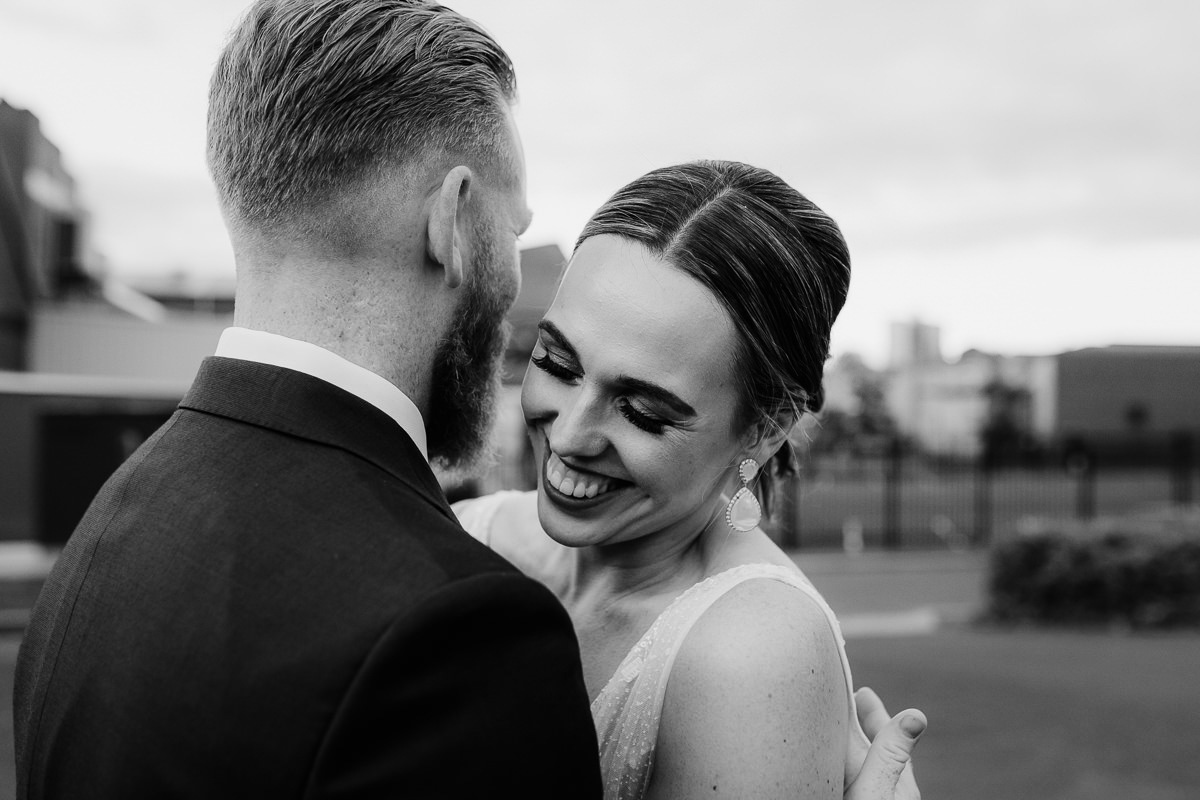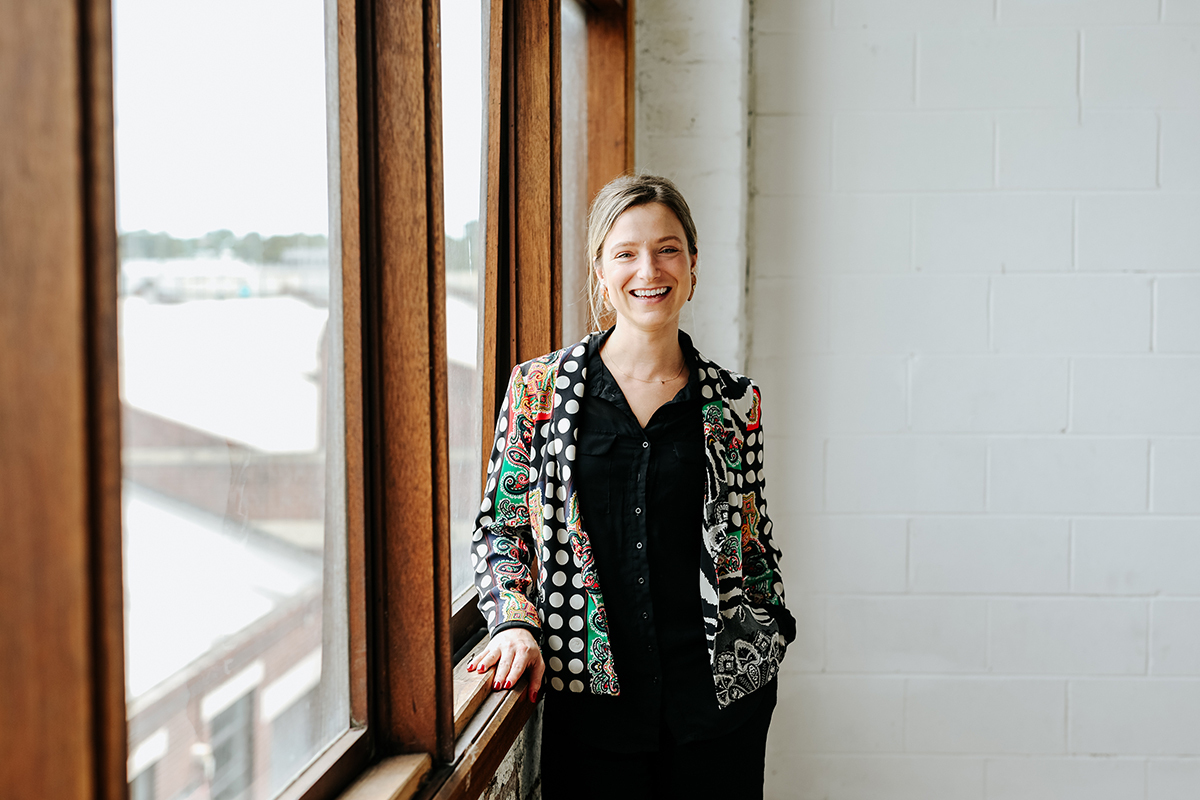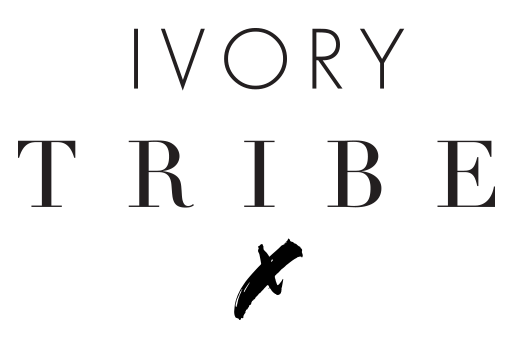Pre-marriage counselling – we get the lowdown.

Photo by Bulb Creative
The pre-wedding phase can be full of flowing serotonin and oodles of love. But it’s also a stressful and testing time for many. Pre marriage counselling can help to navigate some of these stresses, ease anxiety and ensure a couple are both feeling calm and confident on their wedding day and beyond.
Enter, Natalie Claire King, a relationship therapist who specialises in pre-marriage counselling with a contemporary and fresh approach.
Natalie is skilled in her profession and through her program, she offers couples an opportunity to strengthen their relationship focusing on strategies and tools for effective listening and communication skills, as well as exploring core relationship foundations like money, children, conflict resolution, intimacy and more.
Pre marriage counselling doesn’t mean your relationship is in trouble, rather it allows you and your partner to iron out any future causes for concern that may arise so you can keep your love and your relationship in tact. Investing in her services is really an investment in your relationship and allows couples to not only survive stresses but thrive.
Natalie we were so intrigued by your business, can you explain who you are and what it is that you do?
I’m a relationship therapist, specialising in helping pre-married couples manage wedding stress, prepare for marriage and build a solid foundation for a lifetime together.
I love working with couples and feel especially privileged to be invited into the intricacies of each unique relationship. I help couples either tune-up or transform their relationship and am touched when clients see the vulnerability behind their partner’s surface signals, and how this brings them closer, strengthening their bond.

What is the process? Do you interview couples, do they complete a questionnaire?
- We have an Intro Chat
If couples would like to get to know me first and to see if I’m the right counsellor for them before committing to pre-marriage counselling and working together, I offer a complimentary 30-minute Intro Chat.
- Before the Initial session
Once a couple decides that they would like to go ahead with the pre-marriage program, we’ll lock in a time for the first session. Couples will then receive an online intake form and questionnaire to fill out before their initial session, as well as a copy of the online workbook which is used for guided exercises. They’ll receive the Prepare-Enrich questionnaire, which is a well-researched assessment tool, scientifically validated for over 35 years and well regarded by professionals.
- The Initial session and Follow-up sessions
During the initial session, we’ll discuss the results of the questionnaire, what each individual would like to gain by the end of the program, and map out a plan on what content to cover throughout the program. I’ll also ask couples if they would like to be given homework and/or complimentary readings or podcasts after each session, to go alongside the work we do together.
How long do sessions go for and how many sessions are there?
The pre marriage program includes four sessions, with each session going for 60 minutes. At the end of the program, couples can continue with therapy or book any extra sessions for $110 per session.
What topics are explored in pre-marital counselling?
Topics are focused around a couple’s strength and growth areas (determined by the initial questionnaire), typically exploring:
- wedding stress
- communication
- conflict resolution
- financial management
- sex and intimacy
- preparing for children
- in-law relationships
Each area is discussed and explored alongside the Prepare-Enrich workbook, following guided exercises for each topic. As a relationship therapist, I work in touches of therapy throughout the program, helping couples to see their pattern of conflict that can cause them to feel stuck, how to interrupt this pattern, and experience new ways of talking about sensitive topics that lead to closeness and intimacy.
Some topics and questions that can be good to cover include:
- Children – do we both want to have children? How many would we like to have? When would we like to start? How do we envision parenting roles, split down the middle or one person doing more?
- Finances – do we want to merge them or keep them separate? What level of affluence are we striving for? What debts or other financial obligations are we both bringing into this relationship and what is our plan to pay them off?
- Living arrangements – What are our expectations around renting versus buying? How will we split household tasks? Will the total amount of work, either at home or outside the home, be equal for both of us?
- Political & Religious Views – how do we reconcile our political and religious (or spiritual) views with each other? How important are politics and religion to us? What are our expectations about community involvement regarding politics and religious activities?
- Sex – are we happy with how often we have sex? Are we happy with the amount of variety and exploration we both have sexually? Have we told each other what we do and don’t like sexually? Are we committed to the type of relationship we both freely chose (i.e., monogamy, polyamory, etc.)?
What are the benefits for a couple who undertake pre-marital counselling?
Like preventative healthcare, premarital and commitment counselling for newly engaged couples will set a solid foundation for a committed and loving future together. Undertaking counselling before a crisis happens is the best thing a couple can do to future proof their relationship. Couples will come out feeling more confident to deal with challenges, have a deeper understanding about their relationship and how to approach delicate topics together.
Some couples may worry that by opening up sensitive conversations, they will sour the happy engagement period. But sorting out the big questions about what a committed life together will look like can lead to some of the most intimate moments, bringing couples closer during this exciting time.

Photo by Long Way Home
What would you say are some of the stresses couples experience in a relationship, particularly while wedding planning?
Discussing money can be uncomfortable for many people, especially when it comes to budgeting for a wedding. Money operates metaphorically in our lives, representing security, nurturance, opportunity, trust, and the relationship between dependence and independence. It’s no surprise that money is a major cause of conflict and a multilayered problem for many couples. In order to discuss this topic comfortably, it can help to first start talking about what money means to each of you. Our early experiences help shape our values about money and when we become aware of these, as well as share them with our partner, we can gain a greater understanding about our habits and how to change these for the better.
Managing in-laws is also another common cause of stress that can come up during the wedding planning phase. Numerous issues like both or one side of a couple’s parents not accepting the marriage, wanting the wedding to be planned a certain way or insisting certain friends or family are on the invite list can add to the many pressures of a wedding. The key here is that the couple find a way to stand together as a team and not let this divide them. It could be that gentle boundaries are expressed by them to their parents and in-laws, letting them know they appreciate that they are coming from a place of love and care, thanking them for their input and they’ll take it on board – but ultimately, making these decisions together themselves.
Wedding planning can be a huge stress on a relationship, what are some tips that you have for couples to cope with the pressure of planning?
Couples need each other in those moments of stress, to help each other cope and co-regulate. If a couple can find a way to talk about these stresses together and lean on each other for support, they’ll create a sacred space for each to feel heard and understood, automatically easing anxieties. Connection, especially with a loved one, is the best antidote to anxiety.
If one partner is keen to undertake this and the other is not, is this something they can undertake on their own or do you have any suggestions to get the other partner involved?
The pre-marriage program is designed for both partners to attend; however, it can be the case where one partner is less enthusiastic or may have some hesitancies about attending counselling. I suggest booking a complimentary 30-minute Intro Chat to give both partner’s an opportunity to voice their concerns. This way each partner can get an initial feel for what it would be like to work together, what to expect from the program and I can ease any worries they have. If one partner feels they just don’t need it, it’s a fine line to respect this so they don’t feel pushed as well as ensure the other partner’s needs and longings are being met. I’m also happy to have an Intro Chat with just one partner to see if there’s a way we can still work together or invite their partner along.
Should a couple only go to counselling if they’re experiencing issues, or would you recommend using counselling even if a relationship is going well?
Using counselling when a relationship is feeling good is actually the best time to explore niggles, set relationship goals and ensure you’re prepared to handle any of life’s challenges. When a couple is feeling strong and secure within their relationship, there’s a higher tolerance and capacity to talk about tricky topics, without this leading to doubt or anxiety about the relationship, like it otherwise might when facing a crisis or feeling less secure within their relationship. Opening up these channels of communication now will allow a couple to feel confident to approach any issue together in the future.
If a couple are already married, are their services you can offer them?
Yes, I offer therapy to both married and non-married couples, whether they’re in the depths of facing certain issues (infidelity, mistrust, constant conflict, poor communication etc) or simply needing support to feel closer and more connected to each other.
Where are you based? Are all sessions face-to-face or is there a Zoom option?
I am based in Melbourne and offer all sessions online via Zoom.
We see this is such a great investment in any relationship, what is the cost?
The pre-marriage counselling program is $500 and includes:
- An initial 30-minute Intro Chat
- Four 60-minute couple sessions
- The Prepare-Enrich couple questionnaire
- The Prepare-Enrich couple workbook
- Optional exercises, readings and podcasts in between sessions
To book your Intro Chat or embark on Natalie Claire King’s pre-marriage counselling program (which we highly recommend) you can find the program on her website, you can also find Natalie on Instagram.




